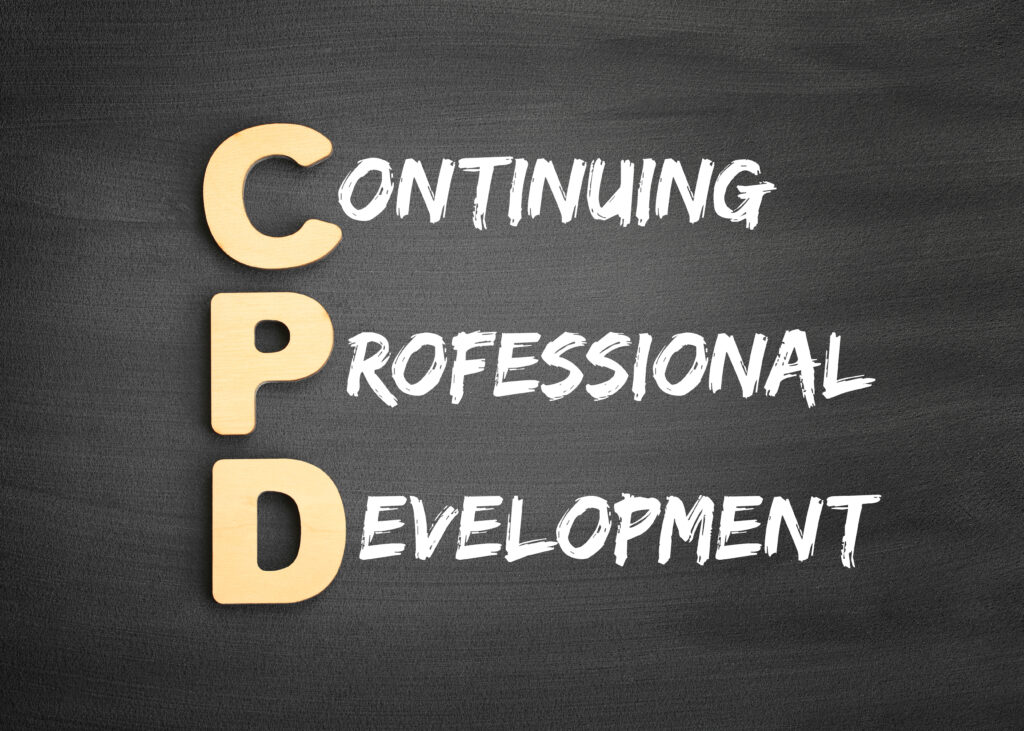What is continuing professional development?
19 October 2023

The Simply Academy AdviserSkills programme has been withdrawn and is no longer accepting new enrolments.
In order to succeed in the financial services industry, you require more than just the right Financial Services qualifications and all the technical knowledge that comes with them. You also need the right set of soft skills to build and maintain strong professional relationships and the ability to comply with constantly evolving rules and regulations. This is where continuing professional development (CPD) can help.
CPD is becoming an increasingly important aspect of the financial advice profession, but one that people often overlook. The fact is, CPD can serve as a mechanism for both financial advisers and specialist mortgage advisers to stay up-to-date with their profession, hone their interpersonal skills and adapt to the ever-evolving landscape of their respective fields.
In this blog, we will explore the meaning and workings of CPD and outline how important it is (or can be) to both prospective and existing financial advisers.
What is CPD?
Put simply, CPD refers to the ongoing, structured process of professional development in a specific career. The purpose of CPD is to not only consolidate and maintain the existing technical knowledge, typically acquired through the gaining of a specific qualification, but also to refresh and update this knowledge.
Perhaps more importantly, it also improves an individual’s interpersonal skills. These are the social, emotional and relationship-building skills that are not usually covered as part of a technical qualification, but are equally important when it comes to succeeding in a client-facing profession.
CPD activities can involve a broad range of experiences. Depending on the focus area, these include everything from group workshops and seminars to online courses, industry conferences and self-directed learning.
What is structured CPD for financial advisers?
When it comes to the financial services sector, structured CPD is vital. After all, as a qualified financial or mortgage adviser you are responsible for helping individuals make potentially life changing financial decisions in the way of investments, mortgages, pension schemes and saving plans. In order to provide the best advice possible, not only must you constantly refresh and update your knowledge to stay relevant in a dynamic industry, you must also have the ability to communicate effectively and build strong relationships with individuals from all walks of life.
Financial Services CPD is often structured around three essential development areas:
Ethics and Customer Focus
Financial advisers must uphold the highest ethical standards. Structured CPD courses emphasise principles like openness, honesty, transparency and fairness. By adhering to these principles, financial/mortgage advisers can better ensure they are working in their client’s best interests. This area helps to improve skills such as meticulous record keeping, improved relevant stakeholder interaction, and ongoing compliance with evolving regulatory requirements.
Building Effective Client Relationships
The ability to build and maintain strong client relationships is essential for financial advisers. While some people have these skills naturally, for others it takes some practice. Structured CPD can help advisers to develop these interpersonal social skills, meaning building business relationships and creating rapport with clients comes more naturally. CPD in this area may also focus on helping advisers improve their general management, communication and negotiation skills – all essential abilities in this competitive industry.
Mastering Client Meetings
An extension of relationship building, mastering client meetings is all about ensuring your adviser-client interactions go as well as possible. Many structured CPD programmes do this by breaking down the entire advice process, from initial calls and fact-finding to researching, identifying and presenting solutions. By doing this, helpful tips and skill building exercises can identify and remove any weaknesses an adviser has in their interpersonal skills set.
Typically, financial advice CPD courses will also focus on how to deal with referrals, as well as a few general business skills such business growth techniques and self-promotion/advertising.
Is CPD a requirement for every financial adviser?
The requirement for CPD varies depending on the regulatory authority governing financial services for the role you are working in. For example, when it comes to financial and mortgage advice in the UK, all professionals need to adhere to the Financial Conduct Authority’s (FCA) CPD requirements. Currently, the FCA states that advisers must complete a minimum of 35 hours of CPD each year. If you also provide other regulated services, you will also need to carry out additional CPD.
For assistance with planning your Financial Services studies, please feel free to get in touch with our expert Student Support team. You can contact them by email at [email protected] or on Freephone 0808 208 0002.



